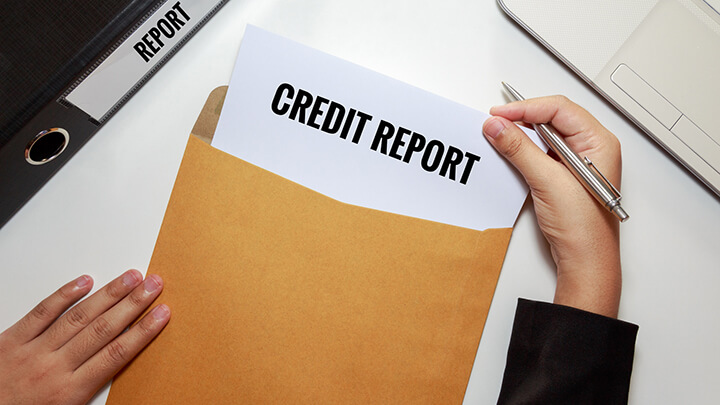
Your FICO credit score is something like the Bermuda Triangle. You never know if your creditworthiness is going to disappear for some unknown reason, a development which could consign you to financial oblivion.
Undoubtedly, credit bureaus are something of a mystery that can inspire a mixture of awe and dread in many consumers. However, navigating their perilous rules is not impossible. If you understand how these entities work, then you can keep your finances afloat. With that thought in mind, here are five secrets of credit reporting agencies that you need to know.
1. Credit agencies exist to make a buck off you
Some people are under the impression that credit bureaus are government agencies. The big three — TransUnion, Experian and Equifax — may come across as quasi-official bureaucracies, but they are private companies out to profit at your expense.
In fact, they make money by selling your personal and financial data to third parties including potential creditors, mailing lists and businesses interested in learning more about your behaviors. Yes, credit bureaus are supposed to follow rules that will protect your privacy, including ones that prevent you from receiving direct-marketing offers.
Of course, consumers frequently complain that their personal information is being misused. However, you can opt-out of annoying pre-approved offers, which are generated when credit agencies sell your info to insurance companies and potential lenders.
2. Credit bureaus have a vested interested in stacking the deck against you

Do you enjoy getting junk mail from Capital One, State Farm or Amex? If so, you have the credit bureaus to thank. In fact, the agencies that monitor your financial activity aren’t doing it as a public service — they are really in the lead generation business.
As it happens, credit bureaus tend to make more money off people with bad credit rather than good (by some accounts twice as much). Consequently, they try to rig the rules to make it more difficult to keep your record spotless.
Unfortunately, credit agencies are usually itching for a reason to drop your FICO score. Indeed, just one missed payment to a creditor — be it to a bank holding your mortgage, a credit card company or even a medical bill — can sink your ranking faster than you can blink.
To make matters worse, credit bureaus are notorious for committing mistakes. For example, by some estimates, 80 percent of American consumers have at least one error that they’re not responsible for on their credit reports.
3. Credit agencies look to nab you with catch-22s
Ever feel that you’re damned if you do and damned if you don’t? Well, credit bureaus have perfected the art of the catch-22. For example, negative past due notices are supposed to remain on your credit report for seven years, after which they are wiped clean.
However, imagine you have an outstanding bill from roughly six years back. It should be wiped off your record within a year even if you don’t pay it off. But wait, you decide to do the right thing by taking care of it.
Showing you settled your account should reflect positively on your credit report, right? In actuality, most credit bureaus will reset the seven-year clock from the point of the last activity on an account. In this instance, that blemish will stay on your report for an additional seven years just because you settled up.
Here is another catch-22 credit bureaus engage in. Errors are fairly common on credit reports and they can adversely impact your financial situation. Understandably, consumers have a keen interest in keeping an eye on their credit reports.
However, requesting them too often sets off alarm bells (by suggesting you are desperate for credit), which will sink your rating. Once again, it’s hard to win with credit bureaus. The best you can do is be aware of the catch-22s that exist so that you can navigate them as adroitly as possible.
4. It’s up to you to make sure your credit report is accurate

Credit bureaus are far from flawless when it comes to accurately representing your credit history. However, you cannot count on them to rectify these mistakes on their own. You can dispute erroneous information contained in your report, but frequent follow-ups are par for the course.
Experts suggest that dispute resolution is usually best handled online at a credit bureau’s website. They also recommend making sure that you properly categorize the mistakes you believe have been made on your report. Frequently, this entails checking off a series of boxes, which helps the bureau recognize the specific errors that you want them to identify and correct.
You should recognize that credit bureaus set the bar high when it comes to deleting errors — 98 percent of dispute inquiries are not resolved in the consumer’s favor. You can increase those odds by:
- Correctly categorizing the nature of your dispute by carefully checking off all the pertinent boxes on a bureau’s online form.
- Avoiding frivolous disputes.
- Recognizing that the burden of proof is on you.
5. Your mysterious FICO score is actually methodical
Sometimes, the algorithms behind a credit score can seem impenetrable and arbitrary. However, understanding the variables that get weighed (there are about 20 in all) can help you keep your score as high as possible. Here are the factors that are typically the most important:
- Paying your bills on time.
- Your debt to credit ratio. If you max out your cards, then your score will dip.
- How extensive is your credit history? The longer you’ve used credit, the more points you’ll get (presuming you’ve paid your bills on time).
- Your mix of credit experiences. Paying back a diversity of lenders (home mortgage, auto loan, credit card debt) will improve your score.
- Over applying for new credit applications. Credit bureaus sometimes view this as sign that you are overextended.
Credit bureaus have been described as a necessary evil. Their reputations are not likely to improve anytime soon as recently some of the major agencies have come under scrutiny for failing to safeguard personal financial data. However, it’s unlikely these firms are going away. The best you can do is understand how they work so that they are not working against you.
— Scott O’Reilly

